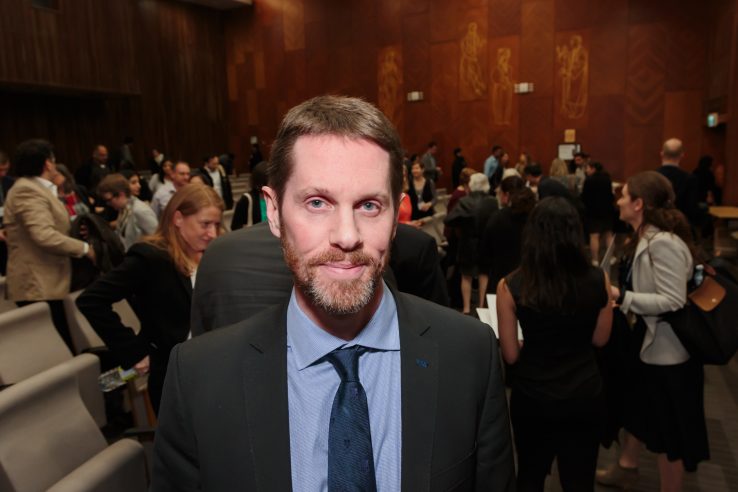University of Toronto researchers studied patterns of end-of-life care among patients of different cultures, religions and ethnicities and found that recent immigrants identified as those who arrived between 1985-2015, were significantly more likely to receive aggressive care in the last 6 months of life compared with other residents.
“The message that palliative care is not the same as giving up, is a difficult message for many clinicians to deliver to patients and families,” said Professor Rob Fowler, Program Director at the Institute of Health Policy, Management and Evaluation.

Photo by: Horst Herget Photography
“For patients who have recently immigrated to Ontario from other parts of the world, these conversations are even more challenging when clinicians and patients approach such a potentially stressful period from a different language, a variety of cultural backgrounds, and religions,” said Fowler who is also a physician at Sunnybrook Health Sciences Centre.
Fowler worked with post-graduate trainee Dr. Chris Yarnell, Therese Stukel, Andreas Laupacis, Damon Scales and Ruxandra Pinto as well as collaborators from the Institute for Clinical Evaluative Sciences (ICES) on a study published in JAMA on October 3, 2017 to examine end of life care provided to 967, 013 patients in Ontario hospitals between 2004 and 2015.
They found that recent immigrants were significantly more likely to receive aggressive care — mechanical ventilation, dialysis, feeding tube placement — and to die in an intensive care unit (ICU) compared with other residents, a finding that was strongly associated with region of birth. They also discovered that compared to long-time residents, immigrants from Northern Europe were about 16 per cent less likely to die in ICU, while those from South Asia was nearly twice as likely to die in ICU. These differences were determined not to be related to language ability, education or wealth, so while the study has proven their original hypothesis, it has still not explained why.
According to Dr. Fowler, the current default practice in Ontario hospitals, even when an illness is incurable, is focused upon tests, procedures and medication that target a disease, instead of providing care for a patient and their symptoms. He believes a palliative approach and symptom management should be started earlier for the patient in order to complement ongoing treatments for their disease.
Dr. Fowler also notes that in Canada our approach to end of life care can seem like a menu of health care options, where patients and families are asked to choose without it being explained to them that other less aggressive options might be available.
“There could be a sense that the most care is the best care, especially for those who may not have had access to treatment at some point in their life,” said Dr. Fowler.
What is the next step? A deeper appreciation of the multiple perspectives that patients and their families can bring to end-of-life discussions.
“While the study has determined where variation in care exists, it is only by tackling the question in a more qualitative manner, and exploring options with dialogue between patients, families and clinicians will we gain the understanding of why differences exist and learn where and how we can improve health care for an increasingly multicultural population,” said Fowler.
Related News

Sign up for IHPME Connect.
Keep up to date with IHPME’s News & Research, Events & Program, Recognition, e-newsletter.
Subscribe to Connect Newsletter
Get in Contact
Communications
Marielle Boutin
Email Address: ihpme.communications@utoronto.ca





